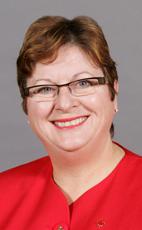Mr. Speaker, it is a pleasure to be a part of this debate because public safety is important to all Canadians and all parties in this House. I really believe that all parties in this House work to improve public safety for Canadians.
In that regard, I have had the pleasure over the years to work on the justice committee and on the public safety committee with the member.
When the Conservative government came into power, a large number of bills were introduced but they sat on the order paper and were not sent to the justice committee, some of them for long periods of time.
I want to ask the member whether or not he agrees with me that the government party is the only party that takes care of the order of business in this House. Some of those original pieces of legislation sat on the order paper for a long time after they were first introduced.
The justice committee of this House is a very effective way of improving legislation.
A lot of the bills that were introduced as part of the original agenda were actually researched and widely consulted on under the former Liberal government. In fact those pieces of legislation tended to proceed much more quickly in committee because a lot of the concerns had been worked out and consulted on before the original bill first entered Parliament. Now we are seeing bills where there has been less consultation and preparation.
I agree with the member that most of these bills are starting over in the House when they could have started at the stage where they left off before prorogation, in the Senate, but we are now dealing with this as it is.
I want to hear the member's opinion on another bill, the street racing bill. In fact when I was justice critic, all the parties, including all the opposition parties, agreed to fast-track that bill because we wanted to see it rapidly in place. That fast-track offer was also put in place with respect to the age of consent bill. I agree with my colleague who made a speech that the original private member's bill from the Conservatives did not have the close in age exemption and that is why the work that was redone was done properly.
I would ask my hon. friend to comment on those points.

